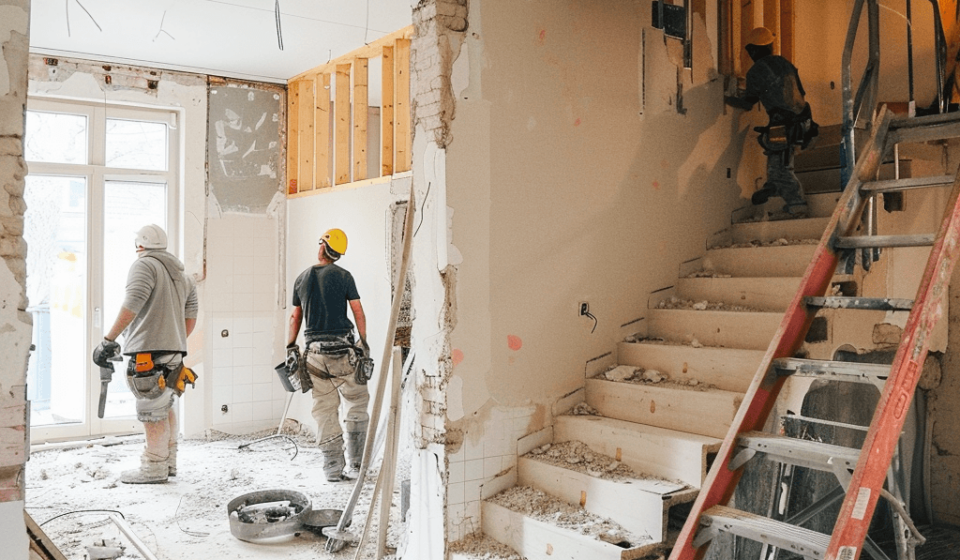Are you still collecting rent using traditional methods? If you are a landlord with a busy schedule or multiple properties to manage, you might be wondering how to streamline the rent collection process. Using an automated rent collection, landlords can save time and focus on other important aspects of the property management business. Automating rent is one of the best solutions for removing the hassle of late payment collections and monthly reminders for tenants. As the property management industry continues to grow, with a 2.1% increase from 2022 to 2023, there is still a growing need for evolution within the sector. To keep pace with this growth, landlords must explore various methods to automate rent collection and streamline the process. Let us explore various ways landlords can implement to automate rent collection and simplify this process.
Card Payments
One option for collecting rent is through card payments and the main advantage is that transfers can be automated monthly. However, one big problem with cards is that sometimes they can be lost and the recurring payments can become failed payments. You have to consider that each payment method has its disadvantages and for cards between 6-18% of payments fail.
Rent Collection Software
Using rent collection software is one of the easiest and fastest ways to automate rent collection. Rent collection software brings multiple advantages for landlords like keeping track of property deposits, accessing payment history, automated receipts, and invoices. Plus, tenants can set up recurring rent payments and automate invoices being convenient for all parties involved.
ACH Payments
ACH payments for rent collection have become popular because they are easy to set up and convenient for property managers. In the U.S. alone these are widely used for rent collection because property managers can automate recurring payments, enabling tenants to set up automatic transfers on a specific date. One main advantage of using ACH for rent payments is the reduced risk associated with stolen checks. ACH payments come with authentication measures which add an extra layer of security for fraud prevention. A survey made by the U.S. News concluded that 73% of respondents experienced one case of identity theft.
Online Payment Portals
An easy solution for automating rent collection is to set up an online payment portal where tenants can securely pay rent using credit and debit cards, bank transfers, or digital wallets. Setting up an online payment portal streamlines the process and allows for automatic recurring payments. Examples of popular online payment portals include PayPal, Stripe, Adyen, and many others. According to Statista, in the U.S., PayPal is the most widely used online payment brand.
Standing Order
Standing orders make collecting rent simple. Tenants tell their bank to send money to the landlord’s bank account every month on certain dates and once it is set up, the payments happen automatically until the tenant wants to stop. This helps landlords and tenants because it makes sure rent is paid on time without the need to do it manually each month.
Automating Rent Collection Overview
Automated rent collection has gained popularity in recent years, especially with the rise of digital technology in the real estate industry, which the epidemic has further accelerated. In 2023, the U.S. Property Management Market size was estimated at $78 billion and is expected to increase to $98 billion by 2029. However, depending on the state you are a landlord, you should read the local laws before any contract lease as it might lead to some legal issues. For example, in California, you cannot require tenants to pay rent electronically. According to local law, the landlord needs to provide tenants with at least one offline payment method option for rent collection like cash or check. In case you agreed with the tenant to enable autopay, this does not mean payments are 100% guaranteed. Sometimes it happens that the tenant does not have enough funds in their account to debit the money. In some states, like Georgia or Kentucky, the laws on termination contracts for nonpayment of rent give the tenant 7 days to complete payment before the landlord can file for eviction.
Why Landlords Need to Automate Their Rent Collection
The benefits of transferring from the traditional way of collecting rent to automating rent collection are multiple. Collecting payments online makes the entire process more streamlined, reducing the need for manual tasks like collecting and processing checks.
Efficiency
Automating rent collection saves time and effort for both landlords and tenants. Instead of manually tracking down each payment and sending monthly reminders, automating rent collection can become an easy task.
Consistency
Automating rent means that payments are received on time, each month. This consistency helps build trust in tenants, recommends them further, and for landlords improves cash flow management.
Reduce errors
Manual rent collection processes can be time-consuming and predisposed to errors. Automating rent collection eliminates the need for paperwork manual and overall reduces the administrative burden on landlords. The whole process is streamlined and becomes more efficient.
How to Get Your Tenants Pay on Time
To make sure tenants pay on time, landlords can explain clearly when rent is due, offer different payment methods, and send reminders before the due date. Make sure you talk to your tenants and find out why they are paying rent later than the date agreed on in the contract. It is advised to have a good relationship with tenants and to let them know what happens if they continue being late with their rent. If tenants are constantly paying later than the due date, additional fees can be charged by the landlord.
Summary
In summary, automated rent collection helps landlords manage their properties easier than ever. It helps save time compared to the traditional ways of collecting payments by streamlining the entire rental management process. So, if you are a landlord who has not automated rent collection yet, make sure you do it sooner rather than later to reduce the burden for both you and your tenants.




















